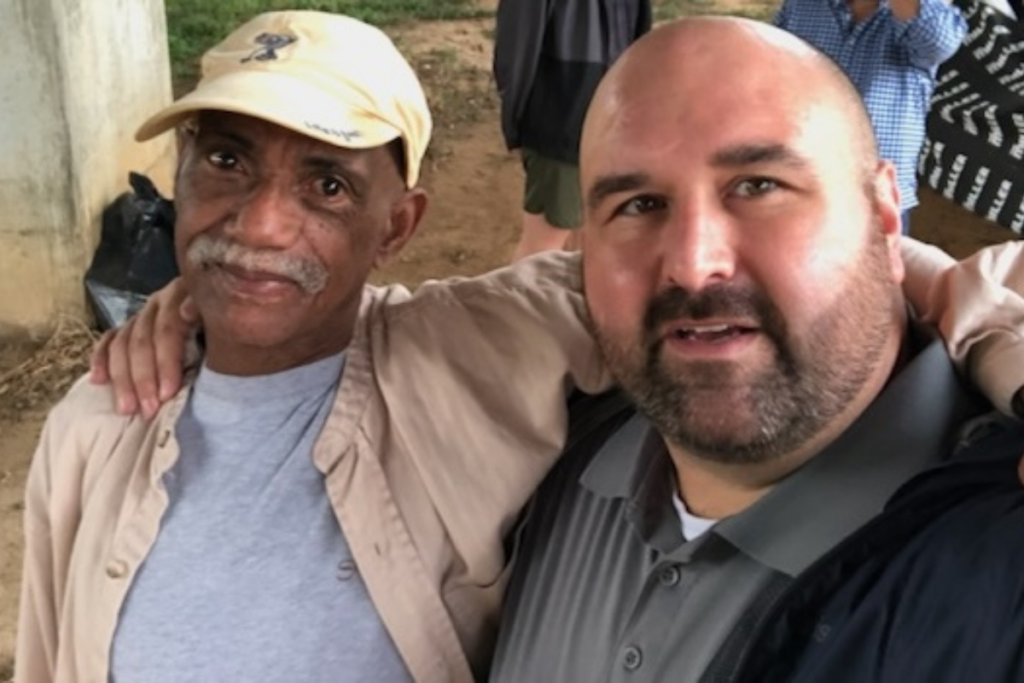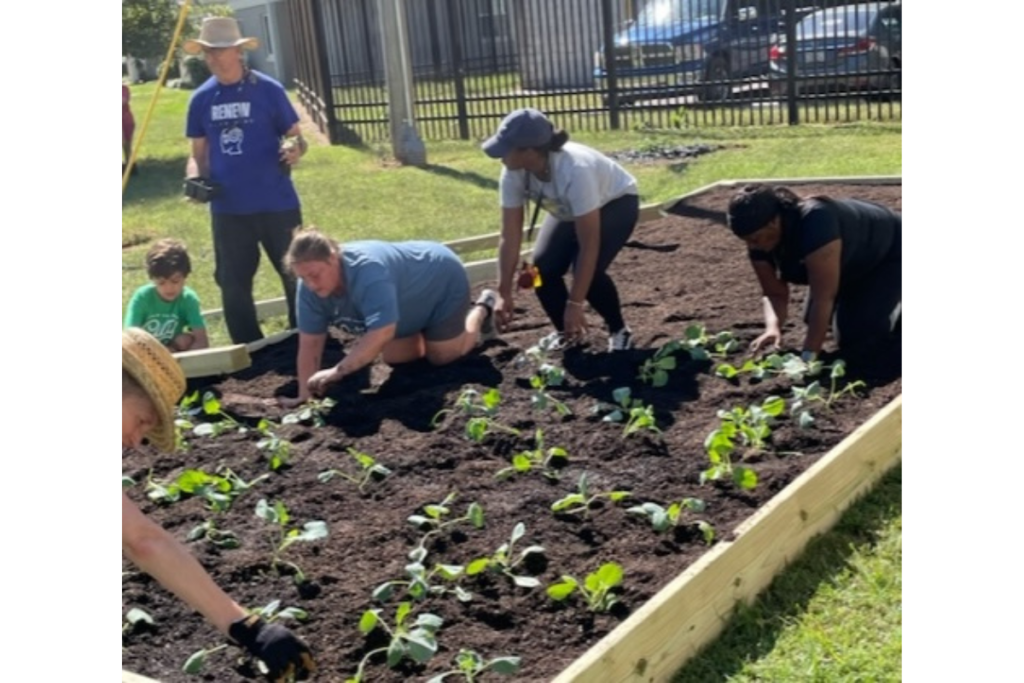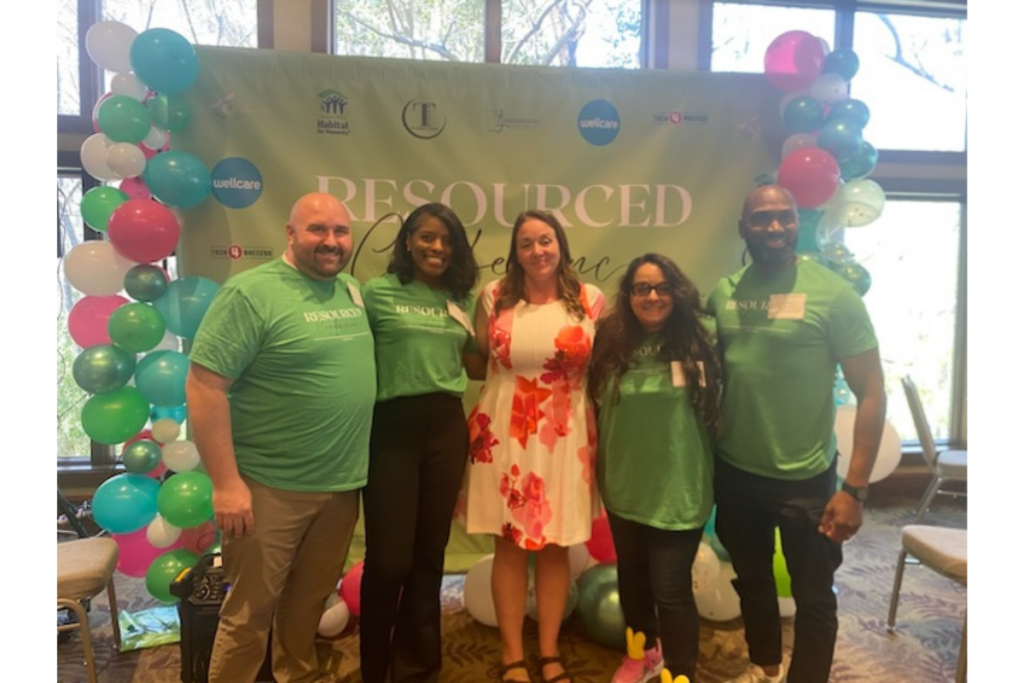
Reprinted from the Chalmers Center.
How do we reach the whole of our city? Jesus is redeeming all things, so how do we lean into that and build relationships in every sector?
First Presbyterian Church of Augusta, GA has wrestled with these questions for two decades. For 220 years, the church has been a central fixture in downtown Augusta, and while they had a rich legacy of supporting international missionaries, they haven’t always been involved locally. Twenty years ago, the church’s leadership saw they needed to change, so they began to hire and recruit volunteers to focus on the work. One of the laborers that helped lead the effort was Luke Niday, Assistant Pastor of Local Outreach & Mercy.
Pastor Luke shares that as a southern church that predates the Civil War, the church has a difficult history of racism. Nestled in the center of the city’s urban core, Jesus is redeeming that story through restored relationships with their neighbors from all walks of life.
Restoring People and Rebuilding Places

With a focus on restoring people and rebuilding places, they began to ask how God might be calling them to reach the neighborhood and city around them. As a result, they began to partner with some of the local city officials and with the school system. The church also purchased and rehabilitated several homes, helping to foster a desire among members to move into the community. As they developed relationships within the neighborhood, they began to listen to the residents and understand the assets and challenges in the community.
Luke credits Chalmers with helping them to understand that the needs they saw were more than just material, they were relational. As they began to mobilize and disciple church members to engage locally, they prioritized relationships, both with their neighbors and with leaders and city officials within every sector of their city.
They’ve often found themselves in situations where the initial perspective is that brokenness and poverty can be solved with more resources, another dollar, or a bigger shelter. Luke finds himself pushing back with what he’s learned from Chalmers.
I don’t know about the rest of the world, but in Augusta, Georgia, we have enough beds for all of the people experiencing homelessness, and we have enough food for all the hungry. We have enough water for all the people who are thirsty. What we don’t have are relationships.
Luke Niday
The Shalom Project

A few years ago, the church launched The Shalom Project, an initiative that is driven by a desire to bring peace to the city. They have also partnered with a network of stakeholders including community members, city leaders, nonprofits, and churches to address needs such as homelessness, lack of diversity, poorly ranked schools, and many others.
By leveraging the church’s social capital and resources, as well as their staff and volunteer network, they are walking alongside others who are also serving all over the city.
- The church worked with a group of members who purchased 60 of 108 available lots and they’ve worked with builders in the church and community to build or rehabilitate homes. Once complete, they work with families to provide affordable rent so they can save for a down payment. Once they’ve saved $2,000, the church works with nonprofits to match it and works with a local bank to help them secure a home loan. So far, 8 families have purchased their own homes.
- Members of the church started Christ Community Health where they share Christ’s love through healing the body, mind and soul. They offer affordable, quality healthcare at 4 clinics throughout the city, providing 10,000 patient visits per year.
- As they learned that only 3.4% of 3rd graders were reading on grade level at their local school and only 40% of young men were graduating high school within 5 years, they began to work with the school system on a wide range of education initiatives including tutoring, art and STEM education, and extracurricular activities.
- They launched Hope for Augusta, a ministry to provide evangelism and discipleship opportunities in the downtown area.
- They’ve partnered with the local Department of Family and Children’s services to support children and families, they are walking alongside the homeless community and working with the local coalition on homelessness, and the list goes on and on.
As they have seen the church adopt a relational approach, listening to and learning from residents, the city leaders are beginning to buy into it as well. Now they’re thinking through what methods they can use to build more relationships.
Restoration is slow, difficult work, but the Lord has been faithful. As they’ve identified places of brokenness in their own lives, in the church, and within their community, God’s people in Augusta have seen the healing power of the Gospel at work as all are restored to flourishing.
Praise God!
